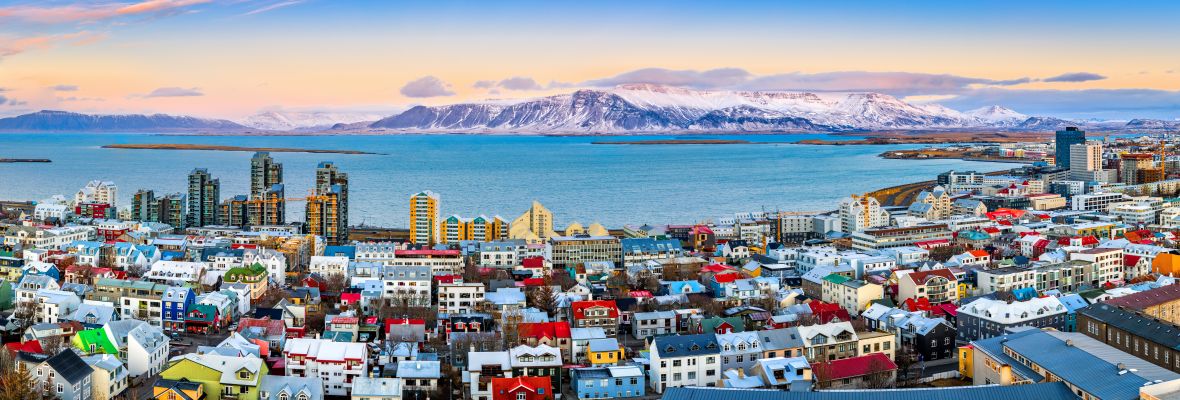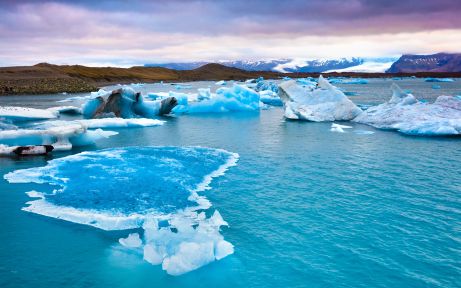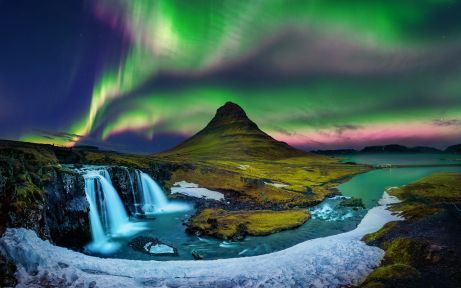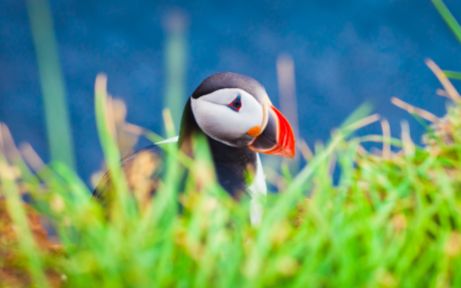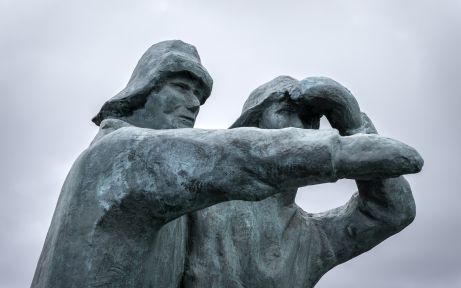Exciting changes are on the way!
As part of our merger with Polar Latitudes, we’re refreshing key elements of our website to reflect this new chapter. Discover more in our latest news update.
Iceland is a Nordic island country in the North Atlantic Ocean and the most sparsely populated country in Europe.
Iceland's capital and largest city is Reykjavík. Reykjavík and the surrounding areas in the southwest of the country are home to over two-thirds of the country's population. Iceland is the only part of the Mid-Atlantic Ridge that rises above sea-level, and its central volcanic plateau is erupting almost constantly!
According to the ancient saga Landnámabók, the settlement of Iceland began in 874 AD when the Norwegian chieftain Ingólfr Arnarson became the first permanent settler on the island (although Irish monks known as the Papar may have existed there for a few centuries prior). Arnarson established his farmstead near modern day Reykjavík, and many settlers followed from mainland Scandinavia (often bringing slaves from Scotland and Ireland). By 930, most of the island had been claimed, and the Althing established - one of the world's earliest parliaments, which survives to this day!
Area of Iceland
Population of Iceland
Facts about Iceland
- Icelandic culture is founded upon the nation's Scandinavian heritage. It includes traditional cuisine largely based on local produce such as seafood and lamb, as well as a rich literary heritage, including the medieval Icelandic sagas.
- Most Icelanders are descendants of Norse and Gaelic settlers. Icelandic, a North Germanic language, is directly descended from Old Norse and is closely related to Faroese.
- Reykjavík (roughly translated as "Smoky Bay") is believed to be the location of the first permanent settlement in Iceland - the now lost farmstead established by pioneer Ingólfr Arnarson, who gave the area it's name.
- Despite it's relatively small size, Iceland plays an important role in global politics. It is a member of NATO, the EEA and the Nordic Council, and famously hosted the 1986 summit between Reagan and Gorbachev. Iceland is also well known for progressive policies on LGBT+ rights, green energy and social equality.
- Arctic
- Iceland



